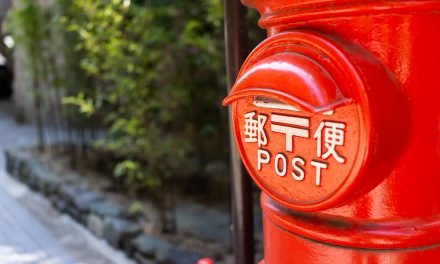
Plan emerges for Japan Post
The state-run Japan Post will likely be transformed into a special joint-stock corporation in which the government would have a 100 percent stake, government sources said Saturday.
The planned corporation would operate subsidiaries to provide nationwide mail-delivery services and regionally-based postal savings and insurance services, according to the sources.
These ideas constitute a sketch of plans being contemplated as a result of the government’s ongoing study of how to privatize the three state-administered postal services–mail-delivery, postal savings and insurance services.
Mail-delivery operations will likely be carried out by a single corporation that would cover the entire nation. Several regionally-based corporations would be set up to provide postal savings and insurance services in their respective areas, the sources said.
These privatization plans represent an effort to ensure that the government will be able to influence mail-delivery services as a whole, with the aim of quieting objections to the privatization from many Liberal Democratic Party lawmakers. The plans also seek to keep a network of about 24,000 post offices nationwide intact.
The Council on Economic and Fiscal Policy, a key government organ led by Prime Minister Junichiro Koizumi, is debating ways to transform the state-run postal services into private-sector operations.
In April, the council hopes to submit an interim report on its discussions, which will be followed by an effort to finalize the specifics of the privatization plan in the autumn.
The government wants to pass pertinent legislation during an ordinary Diet session in 2006, with the intention of turning the three state-administered postal operations into private-sector services by April 2007, according to the sources.
The sketch of the privatization plans is in line with five principles formulated by the Council on Economic and Fiscal Policy in October.
The yet-to-be-privatized Japan Post would be turned into a special joint-stock corporation that would control the three postal services. Measures would be taken to ensure that stocks owned by the government would be sold on the stock market in the future.
This formula is similar to a method used to privatize the defunct Nippon Telegraph and Telephone Public Corporation and Japan National Railways. The public may find the formula acceptable, a government source said.
As of late March 2003, Japan Post possessed a hefty 360 trillion yen in outstanding postal savings and postal insurance premiums. Concerns have been raised that private-sector financial institutions could suffer a serious blow if Japan Post were turned into a single entity with such deep pockets.
To allay such concerns, the Council on Economic and Fiscal Policy has found it viable to separate the postal savings business into seven to 10 regional operations, while dividing postal insurance services between two or three corporations, according to the sources.












